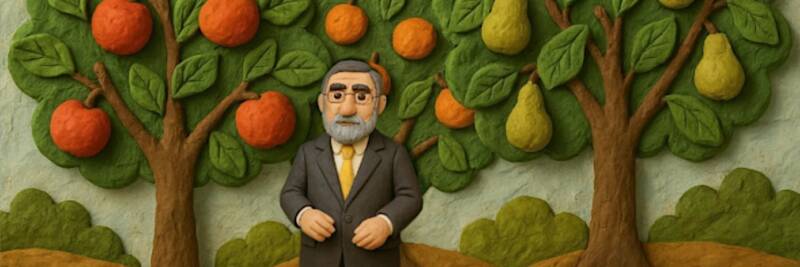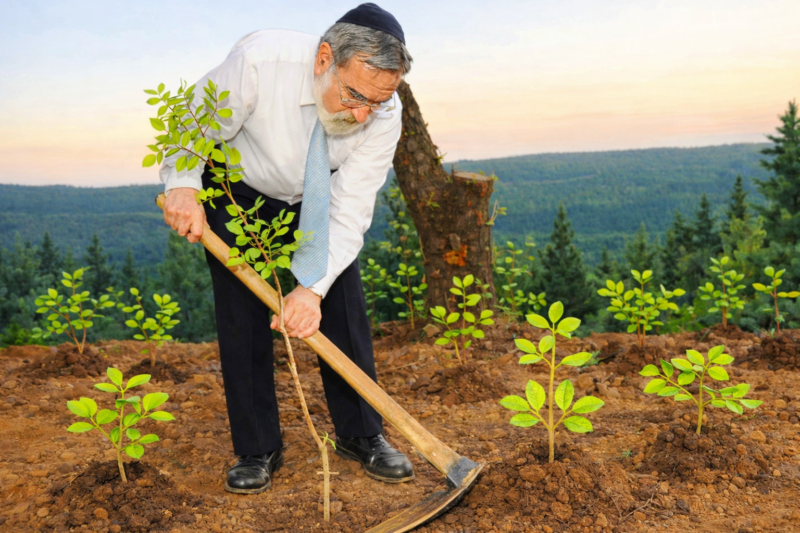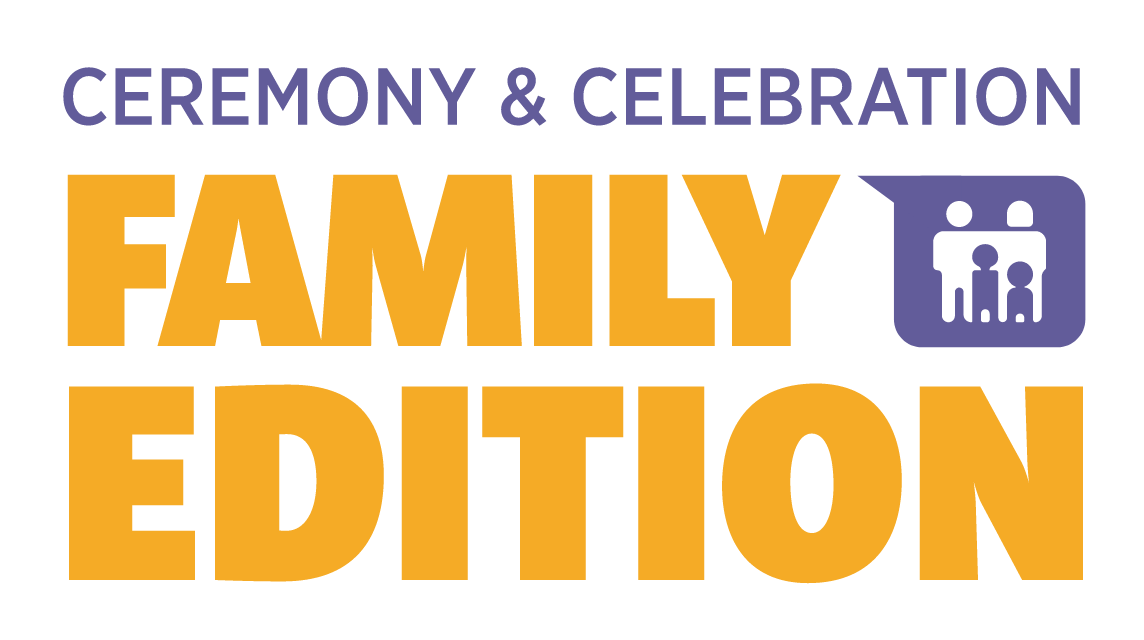Tu BiShvat
Family Edition

Share
When is Tu BiShvat?
The chag of Tu BiShvat is celebrated on the 15th day of Shvat in the Hebrew calendar, hence the name of the festival, ‘Tu’ being the letters Tet (9) and Vav (6) brought together to add up to 15.
Contents

Tu BiShvat in a Nutshell
What is Tu BiShvat? Tu BiShvat (which means the 15th day of the Hebrew month of Shvat) marks the new year for the trees.
The Mishnah (Rosh Hashanah 1:1) tells us there are four ‘New Years’ or ‘Rosh HaShanah’s:
- The 1st of Nissan marks the new year for kings and festivals (i.e. this is the day when we begin counting the new year of a king’s reign and the beginning of the festival calendar).
- The 1st of Ellul marks the new year for the tithing of cattle (this is like the ‘tax year’).
- The 1st of Tishrei (what we call Rosh HaShanah) marks the new year for the counting of years (the calendar), shmittah years, and the tithing of crops (and also the day on which all of humanity is judged by God).
- The 15th of Shvat (according to Beit Hillel) begins the new year for trees.
Tu BiShvat became the date for calculating the beginning of the agricultural cycle for the purpose of biblical tithes, and also marks the beginning of the season in which the earliest-blooming trees in Israel (namely the almond trees) begin to bloom, signifying a new fruit-bearing cycle.
In the Middle Ages the custom developed to celebrate Tu BiShvat with a feast of fruits, and in the 16th century the Kabbalist Rabbi Yitzchak Luria and his students instituted a Tu BiShvat Seder (in the image of the Pesach Seder) in which the fruits and trees of the Land of Israel were given symbolic meaning (see below).
These customs have been renewed in modern Israel, and are widely celebrated by religious and secular alike, due to a deep connection to the land in Israeli society.
This day is also celebrated as an ecological awareness day, and trees are often planted in festive ceremonies.


Points to Ponder
- Do we have multiple ‘New Years’ in our secular calendar?
- Why do you think the meaning behind the festival of Tu BiShvat has evolved over time?
- Do you think Tu BiShvat still has relevance for us today?

Tu BiShvat for Our Time: The Stewardship Paradigm
A significantly abridged version of this text (roughly the words below that are in bold) was made into this video. Younger children will find this video, and the bold text included below, easier to digest than the full text.
Few texts have had a deeper influence on Western civilisation than the first chapter of Bereishit, with its momentous vision of the Universe coming into being as the work of God. Set against the grandeur of the narrative, what stands out is the smallness, yet uniqueness, of humans, vulnerable, but also undeniably set apart from all other beings.
The words of the Psalmist echo the wonder and humility that the primordial couple must have felt as they beheld the splendour of creation:
“When I consider Your heavens,
The work of Your fingers,
The moon and the stars,
Which You have set in place.
What is humanity that You are mindful of it,
The children of mortals that You care for them?
Yet You have made them little lower than the angels
And crowned them with glory and honour.”
(Tehillim 8:3–5)
The honour and glory that crowns the human race is possession of the Earth, which is granted as the culmination of God’s creative work: “Be fruitful and multiply, fill the earth and subdue it.” This notion is fortified in Tehillim 115: “The heavens are the Lord’s heavens, but the earth God has given to humanity.” While the creation narrative clearly establishes God as Master of the Universe, it is the human being who is appointed master of the earth.


Reflect
How does humanity demonstrate that they are “masters of the earth”? How do you demonstrate this in your everyday life?
Grappling with the challenging notion of humans as divinely-ordained owners and subduers of the earth, we come face to face with the fundamental questions of our place in the Universe and our responsibility for it. A literal interpretation suggests a world in which people may cut down forests, slaughter animals, and dump waste into the seas at their leisure, much like we see in our world today.
We come face to face with the fundamental questions of our place in the Universe and our responsibility for it.
On the other hand, as Rav Kook, first Chief Rabbi of Israel, writes, any intelligent person should know that Bereishit 1:28, “does not mean the domination of a harsh ruler, who afflicts his people and servants merely to fulfil his personal whim and desire, according to the crookedness of his heart.” Could God have really created such a complex and magnificent world solely for the caprice of humans?
Bereishit chapter 1 is only one side of the complex biblical equation. It is balanced by the narrative of Bereishit chapter 2, which features a second Creation narrative that focuses on humans and their place in the Garden of Eden. The first person is set in the Garden “to work it and take care of it.”
The two Hebrew verbs used here are significant. The first – le’ovdah – literally means “to serve it.” The human being is thus both master and servant of nature. The second – leshomrah – means “to guard it.” This is the verb used in later biblical legislation to describe the responsibilities of a guardian of property that belongs to someone else. This guardian must exercise vigilance while protecting, and is personally liable for losses that occur through negligence. This is perhaps the best short definition of humanity’s responsibility for nature as the Bible conceives it.
We do not own nature – “The earth is the Lord’s and the fullness thereof.” (Tehillim 24:1) We are its stewards on behalf of God, who created and owns everything. As guardians of the earth, we are duty-bound to respect its integrity.

Reflect
How is seeing our relationship to nature through the terms le’ovdah and leshomrah like borrowing your parents’ car?
The mid-19th century commentator Rabbi Samson Raphael Hirsch put this rather well in an original interpretation of Bereishit 1:26, “Let us make the human in our image after our own likeness.” The passage has always been puzzling, since the hallmark of the Torah is the singularity of God. Who would God consult in the process of creating humans?
The “us”, says Hirsch, refers to the rest of Creation. Before creating the human, a being destined to develop the capacity to alter and possibly endanger the natural world, God sought the approval of nature itself. This interpretation implies that we would use nature only in such a way that is faithful to the purposes of its Creator and acknowledges nature’s consenting to humanity’s existence.

Reflect
Do you think nature would have agreed to the creation of humanity if it could have seen how humanity would come to treat the planet in this generation?
The mandate in Bereishit 1 to exercise dominion is, therefore, not technical, but moral: humanity would control, within our means, the use of nature towards the service of God. Further, this mandate is limited by the requirement to serve and guard as seen in Bereishit 2. The famous story of Bereishit 2–3 – the eating of the forbidden fruit and Adam and Chavah’s subsequent exile from Eden – supports this point.
Not everything is permitted. There are limits to how we interact with Planet Earth. The Torah has commandments regarding how to sow crops, how to collect eggs, and how to preserve trees in a time of war, just to name a few. When we do not treat Creation according to God’s will, disaster can follow.
We see this today as more and more cities sit under a cloud of smog and as mercury advisories are issued over large sectors of our fishing waters. Deforestation of the rainforests, largely a result of humanity’s growing demand for timber and beef, has brought on irrevocable destruction of plant and animal species.
We can no longer ignore the massive negative impact that our global industrial society is having on the ecosystems of the Earth.
We can no longer ignore the massive negative impact that our global industrial society is having on the ecosystems of the Earth. Our unbounded use of fossil fuels to fuel our energy- intensive lifestyles is causing global climate change. An international consensus of scientists predicts more intense and destructive storms, floods, and droughts resulting from these human- induced changes in the atmosphere. If we do not take action now, we risk the very survival of civilisation as we know it.
The Midrash says that God showed Adam around the Garden of Eden and said, “Look at My works! See how beautiful they are – how excellent! For your sake I created them all. See to it that you do not spoil and destroy My world; for if you do, there will be no one else to repair it.”

Reflect
How have we allowed the situation to get to this point? Is it too late to save the planet?
Creation has its own dignity as God’s masterpiece, and though we have the mandate to use it, we have none to destroy or despoil it. Rabbi Hirsch says that Shabbat was given to humanity “in order that he should not grow overweening in his dominion” of God’s creation. On the Day of Rest, “he must, as it were, return the borrowed world to its Divine Owner in order to realise that it is but lent to him.”
Ingrained in the process of creation and central to the life of every Jew is a weekly reminder that our dominion of Earth must be l’shem shamayim – in the name of Heaven.
The choice is ours. If we continue to live as though God had only commanded us to subdue the Earth, we must be prepared for our children to inherit a seriously degraded planet, with the future of human civilisation put into question.
If we see our role as masters of the Earth as a unique opportunity to truly serve and care for the planet, its creatures, and its resources, then we can reclaim our status as stewards of the world, and raise our new generations in an environment much closer to that of Eden.


Reflect
What change can you make today to live by this message?


From the Thought of Rabbi Sacks
Judaism's ecological imperative is a delicate balance between “mastering and subduing” nature (Bereishit 1), and “serving and protecting” it (Bereishit 2). So we have Jewish laws that prohibit needless waste, the destruction of species, and the despoliation and overexploitation of the environment. The general principle is that we must see ourselves as the guardians of the world, for the sake of future generations.
A Letter in the Scroll, p. 165
Though we must exercise caution when reading 21st century issues into ancient texts, there seems little doubt that much biblical legislation is concerned with what we would call nowadays ‘sustainability’. This is particularly true of the three great commands ordaining periodic rest: the Sabbath (Shabbat), the sabbatical year (Shemittah) and the jubilee year (Yovel). On the Sabbath, all agricultural work is forbidden, ‘so that your ox and your donkey may rest’ (Shemot 23:12). It is a day that sets limits to our intervention in nature and the pursuit of economic activity. We become conscious of being creations, not creators. The Earth is not ours but God’s. For six days it is handed over to us, but on the seventh day we symbolically abdicate that power. We may perform no ‘work’, which is to say, avoiding actions that alter the state of something for human purposes. Shabbat is a weekly reminder of the integrity of nature and the boundaries of human striving.
The Dignity of Difference, p. 167
Shabbat reminds us that the Universe is a creation – meaning that ultimately it belongs to God and we are merely its guardians. Adam was placed in the Garden to ‘serve and protect it’, and so are we. One day in seven we must renounce our mastery over nature and the animals, and see the Earth not as something to be manipulated and exploited, but as a thing of independent dignity and beauty. Our world is entitled to its rest and protection. More powerfully than any tutorial or documentary, Shabbat makes us aware of the limits of human striving. To put it another way, Shabbat is a day of ecological consciousness.
Faith in the Future, p. 136

Points to Ponder
- How do we find the balance between “mastering and subduing” nature (Bereishit 1), and “serving and protecting” it (Bereishit 2)?
- How do the mitzvot of Shabbat, Shemittah, and Yovel, help to protect the environment?
- How can we internalise the inherent ecological message of Shabbat, so that we observe this throughout the week too?


Tu BiShvat for the Young (and Young at Heart!)
Top Ten Tu BiShvat Facts
- Tu BiShvat is a date (not the type you can eat, though that is connected!)
- Tu BiShvat is called Rosh HaShanah (for trees) in the Mishnah.
- Bet Shammai taught that the date of the new year for trees should be on the first day of Shvat (which would have meant the festival was called Alef BiShvat!).
- Tu BiShvat is not mentioned in the Torah, but only in the Talmud.
- The original purpose of Tu BiShvat was a tax deadline (for tithing) and only later was it developed into a festival to celebrate trees, and, eventually, the environment.
- The almond tree is the first to blossom in Israel, around the time of Tu BiShvat, and this is considered a very early sign of the oncoming spring.
- It is a Torah law that you are not allowed to cut down a fruit-bearing tree.
- The Talmud describes a beautiful custom where a tree is planted when a baby is born (a cedar tree for a baby boy and a pine tree for a baby girl), and when the baby grows up and gets married, the tree’s wood is used for the chupah (Gitten 57a).
- There is a custom to eat extra fruit on Tu BiShvat, especially fruit from the Land of Israel, and some have the custom to eat a type of fruit they have not eaten that season (and then make the blessing Shehecheyanu).
- The famous kabbalist teacher, Rabbi Isaac Luria (the Arizal) had the custom to eat 15 different varieties of fruit on Tu BiShvat.
It Once Happened on Tu BiShvat…
The following story is inspired by the book “The Giving Tree” by Shel Silverstein. It has been adapted to reflect our current world.
Once there was a tree, and she loved a little boy. And every day the boy would come and play in her leaves, and climb her trunk and swing from her branches, and eat from her apples. And they would play hide-and-seek. And when he was tired he would sleep in her shade. The boy loved the tree very much, and the tree was happy. But time went by. And the boy grew older. And the boy was given his first smartphone. And the boy loved to play games with his friends on his phone and his tablet and his video game console. Every day he would go to school excited to talk to his friends about the games, and every day he would rush home to play the games again. And the tree was often alone.
One day they closed the schools, and they closed the offices, and they closed the shops, because of a dangerous virus. But he still had his smartphone, and his tablet, and his video game console. And the tree was still alone.
But the longer he had to stay at home (and the longer he had to attend school online) the more restless he became.
Until one day, out of the corner of his eye, he caught a glimpse of his old friend the tree through his window (which was just behind his computer screen). The tree had never looked more inviting or beautiful to him, and he ran to sit in her shade and play amongst her leaves and eat her apples.
And he promised never to forget the tree again. And the tree was happy.


Points to Ponder
- Why did the boy forget the tree?
- Why did the boy remember the tree after he was stuck at home because of the virus?
- What lessons do you think we can learn about looking after the environment from our experience during the ongoing coronavirus pandemic?
Chidon on the Chag (A Quick Quiz):
15 SPECIES AND TREES NATIVE TO THE LAND OF ISRAEL
Can you match the seven species (the Shivat HaMinim) and 8 trees that are native to the Land of Israel to their images?

Educational Companion to the Questions
Tu BiShvat in a Nutshell
- We may not call them ‘New Years’ but there are various annual cycles in the civil calendar also. For example, the academic year, the tax year, and sports seasons begin at various times during the year in different countries.
- This festival was originally focused on the agricultural laws (which only apply when living in the Land of Israel). After the exile began, these laws were no longer applicable to the majority of the people, and the festival had limited relevance. In order to continue to connect to both the festival and the Land of Israel during the exile years, new meaning and ritual was found in the festival. A recent example of this is the reconnecting to trees and the Land of Israel after the rise of Zionism and the establishment of the State of Israel.
- In our generation, environmental awareness and conservation has become highly important and topical. This is a theme that connects naturally to Tu BiShvat and creates a new angle and relevance for us in the 21st century.
From the Thought of Rabbi Sacks zt"l
- This is a very challenging question facing us, and finding the correct answer is more pressing than ever before. This is called Environmentally Sustainable Development – where we continue to develop and use the natural resources of the Earth for the betterment of humankind, but in an environmentally responsible way that allows our natural resources to regenerate, without causing permanent and long-term damage. To find the right balance we (individuals and governments) must listen to the experts, including scientists, economists, and moral thinkers.
- These three mitzvot force humans to take a step back from nature, ensuring they refrain from consuming and manipulating nature for a temporary period (one day in seven, or one year in seven for example). This allows the Earth’s resources to replenish, but also, crucially, there is an educational impact on those observing these laws, reminding us that we are not the sole masters of nature and of the Earth’s natural resources. The Universe belongs to a higher power, and we are tasked with maintaining it in a sustainable way in order to benefit from its resources without destroying them.
- From the experience of spending one day a week where we are forced to take stock and realise there are boundaries across which we cannot and should not cross. We are part of nature and not above it. When we recognise this, we can go into the week with a greater awareness of our responsibility to use the world’s resources in an environmentally-conscious way, preserving and protecting them where necessary. The message of Shabbat should impact the way we consume, develop and grow as individuals and as a species.
It Once Happened on Tu BiShvat…
- The boy became distracted by other things in his life. To some extent this is a natural phenomenon. As children grow up, the things that are important to them and take up their time and energy change. However, this is also a metaphor for how we sometimes lose sight of the beauty all around us in the natural world when we become distracted by other things in life that become our priorities, like, for example, technology or our careers.
- During the pandemic, so much was taken away from us. The outdoors and nature suddenly became more important to us than ever before, and our appreciation of nature became heightened. While we couldn’t go about our normal lives (school, work, shopping, etc.) we found ourselves heading outside to appreciate the natural world in a way we may not have done when we had more freedom but also more distractions.
- During the early lockdowns around the world, there was no traffic on the roads, little air travel, dramatically less pollution in the air, less consumerism, and in general the mad rush in life took a pause, as we began to appreciate the more important things in life, such as family, friends, and the environment. As the world edges slowly closer to the end of the global pandemic with the arrival of several credible vaccinations, it is vital we do not forget the lessons we have learned, and that we ensure the redrawing of our priorities and values do not fade away.
Chidon on the Chag (A Quick Quiz)
The Seven Species
Wheat – 6
Barley – 4
Grapes – 3
Figs – 1
Pomegranates – 7
Olives – 2
Dates – 5
Eight Trees Native to the Land of Israel
Terebinth – 7
Oak – 8
Cedar – 5
Tamarisk – 6
Cypress – 4
Sycamore – 2
Acacia – 1
Almond – 3





